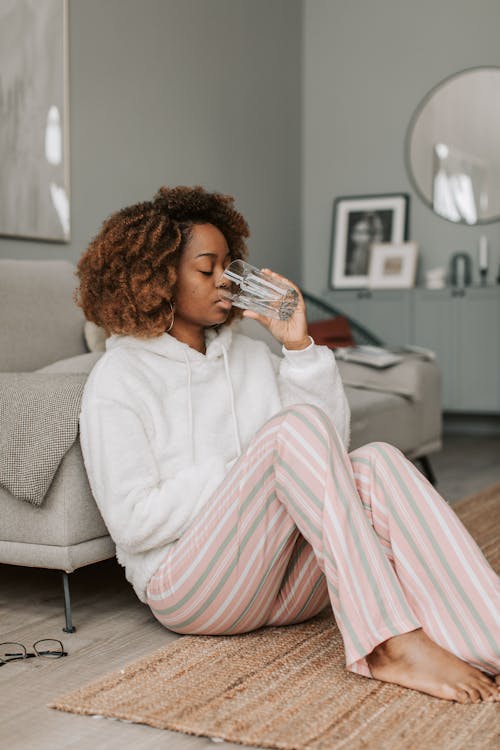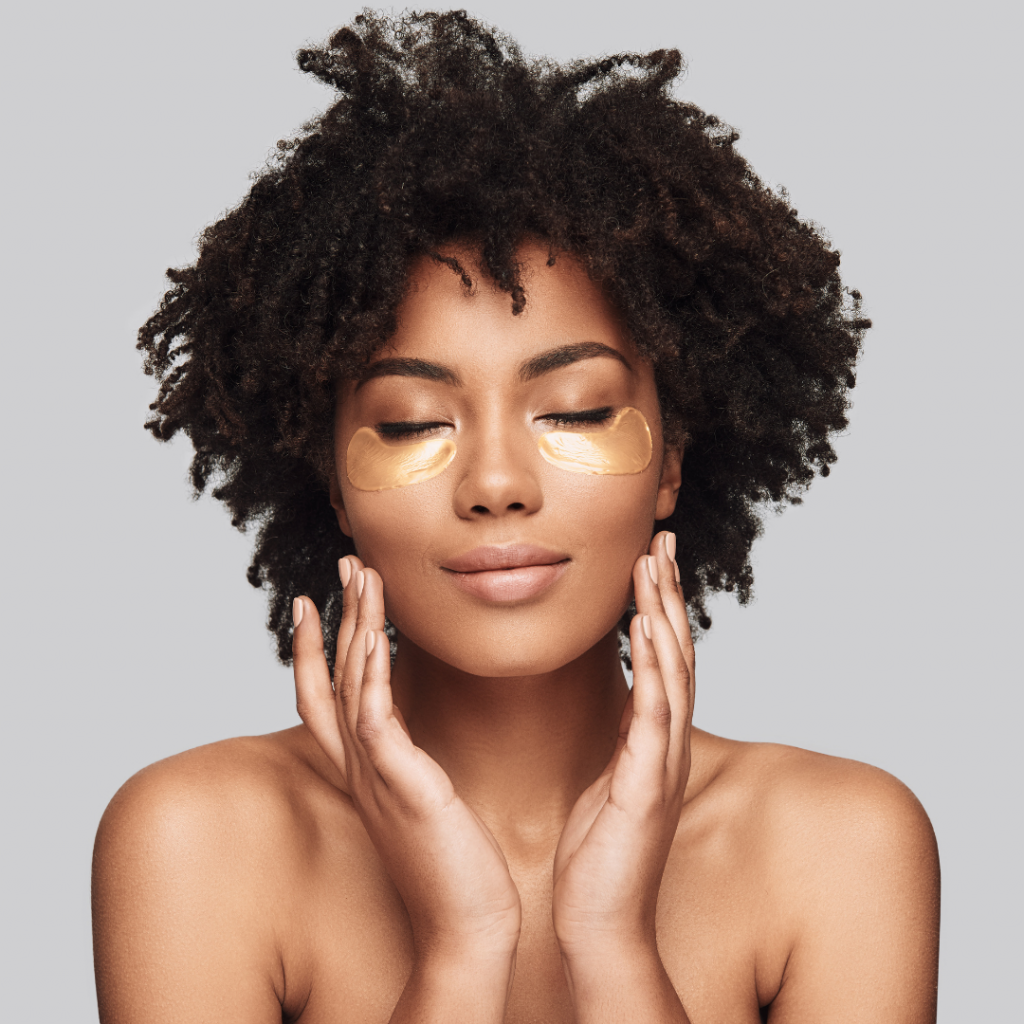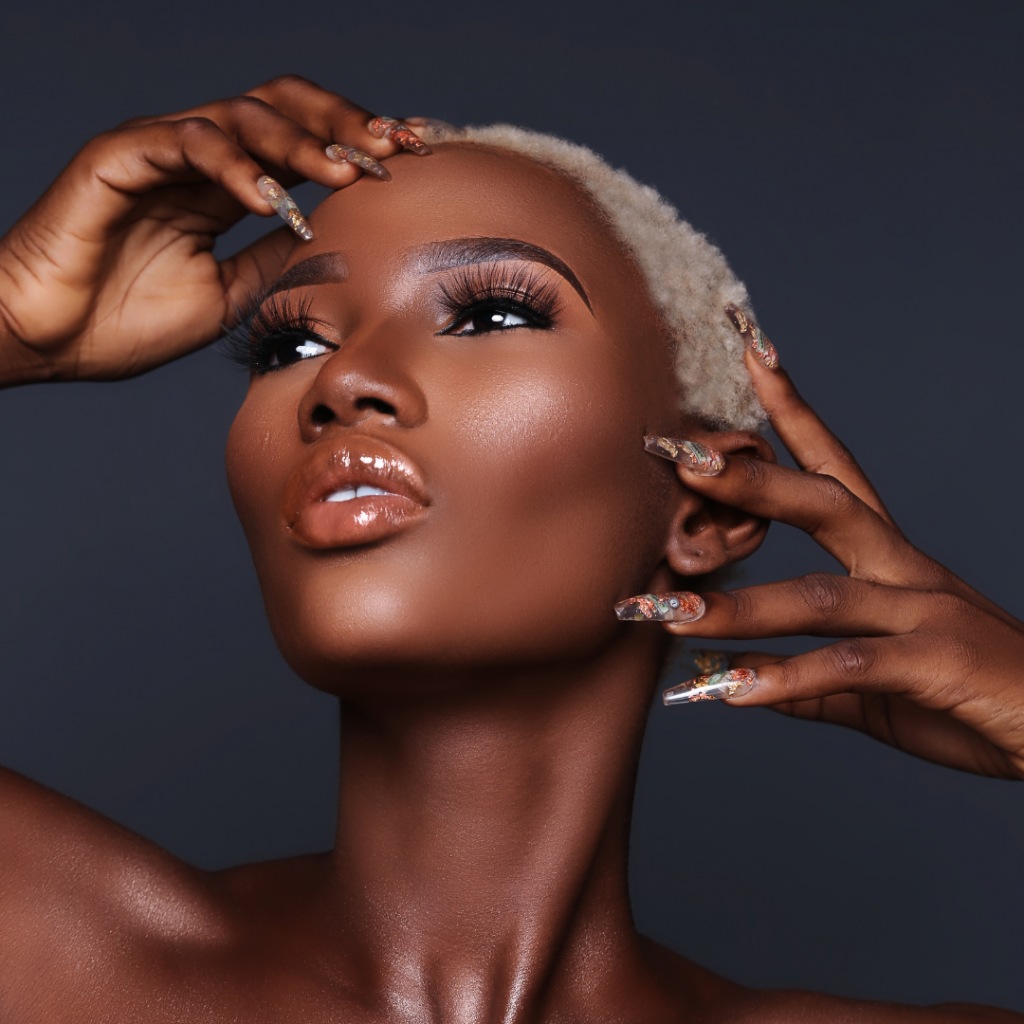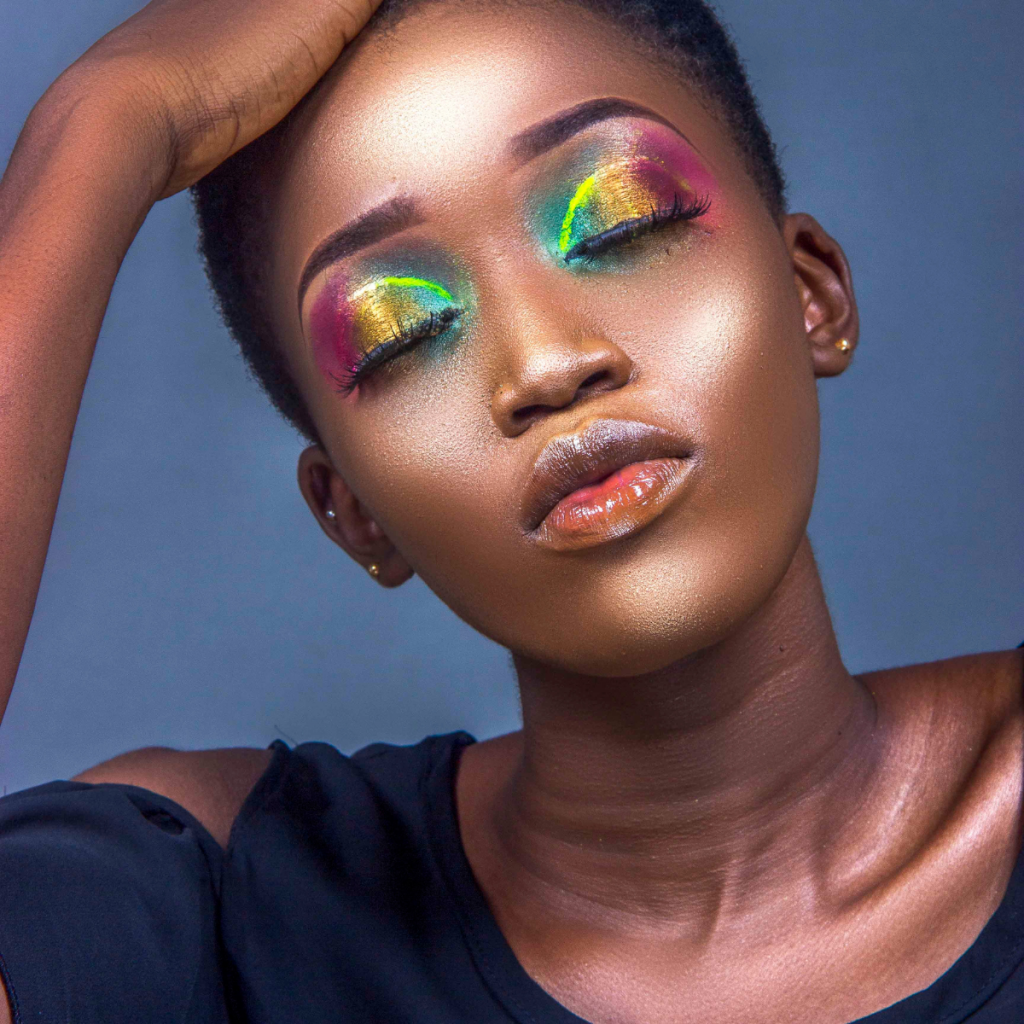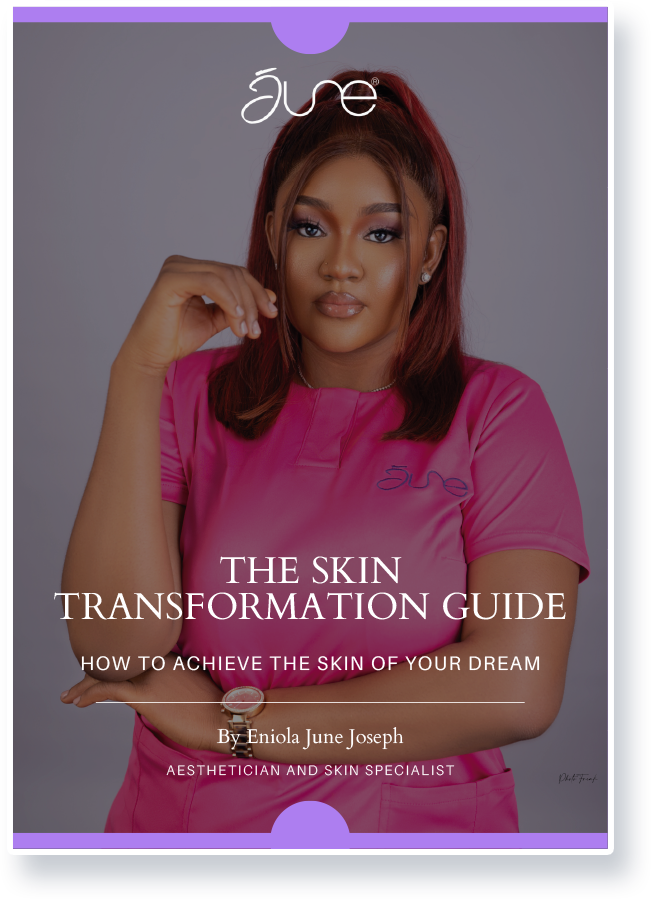Have you ever wished for clear, radiant skin that looks and feels its best? In a place like Nigeria, where the sun’s warmth is as abundant as joy, taking care of your skin isn’t just a luxury; it’s a necessity.
Many of us face these skin care challenges, wondering if there’s a way to attain that elusive, glowing complexion. You’re not alone.
I’m here to guide you through step-by-step instructions on how to properly care for your skin. No more guesswork, no more worries—just glowing, healthy skin that reflects your vibrant Nigerian spirit.
Step 1. Determine Your Skin Type
To take care of your skin well in Nigeria, you first need to understand your skin type. Because Your skin type determines what products are best for you and how to care for your skin properly. Here’s a simple explanation of the different skin types:
- Oily Skin: If your facial skin is oily, it means it produces too much oil. This can make you shiny and, your pores bigger, and you might get pimples. Use products that say “oil-free” or “non-comedogenic” to prevent clogging your pores.
- Dry Skin: Dry skin doesn’t have enough moisture and might feel tight, flaky, or rough. It could also get red and irritated. Use a creamy, hydrating cleanser and a moisturizer with ingredients like hyaluronic acid to keep your skin hydrated.
- Combination Skin: This means your skin has both oily and dry parts. Usually, the forehead, nose, and chin (called the T-zone) are oily, while the cheeks can be dry. To take care of this, use a gentle cleanser and a light, non-comedogenic moisturizer. This way, you don’t make the dry parts too dry or the oily parts oilier.
- Normal Skin: For normal skin in Nigeria, your skin is just righ not too oily or too dry. I call people with this skin type lucky! You can use many different skincare products, but keeping it simple is best. Use a mild cleanser, a light moisturizer, and sunscreen to keep your skin healthy.
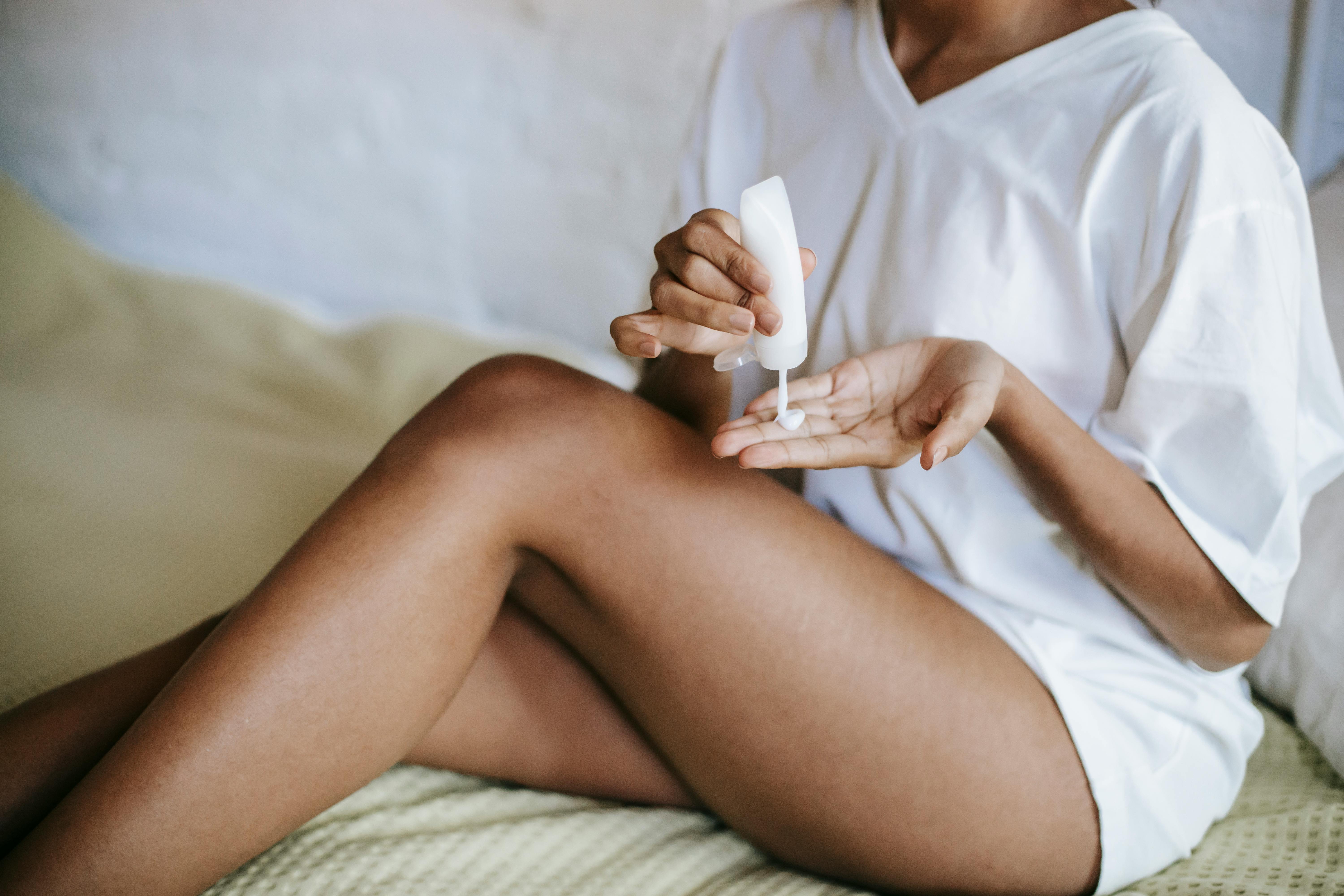
Contrary to what some people think, there’s no such thing as “sensitive skin” in the sense that our skin is not naturally sensitive; it reacts when something’s not right. Skin is tough and built to heal itself. But sometimes, it can become “reactive” when things go out of balance.
Many sensitized skins lose water from the top layer, which makes the skin dry. So, if your skin is losing water and getting dry, it can become reactive. Sensitized skin gets red, itchy, and irritated easily, especially when you use strong products or if the weather is harsh. If this happens to your skin, you can use things like a hydrating ingredient like beta-glucan, hyaluronic acid, glycerin, and occlusive ingredients like oils or petrolatum that will really help lock in the hydration of those other ingredients. Using this ingredient will really help to restore an impaired barrier and prevent transepidermal water loss.
Your skin isn’t usually sensitive by itself, but it can become “sensitized” when it’s not in balance. It’s important to understand that you all.
In simple terms, your skin type helps you find the right products that work best for your skin
Step 2. Gather Your Skincare Essentials
Now that you know your skin type, let’s gather your essential skincare products. These are the basics you’ll need to take care of your skin, based on your specific needs:
- Cleanser: Pick a cleanser that suits your skin type. Foamy ones are great for oily skin, while creamy cleansers are better for dry or sensitive skin.
- Moisturizer: Choose a moisturizer that matches your skin type, so it hydrates your skin without making it greasy or causing breakouts.
- Sunscreen: Sunscreen is a must, no matter your skin type. Look for one with at least SPF 30 to protect your skin from the sun’s harmful rays.
- Special Treatments: If you have specific skin issues like acne, wrinkles, or dark spots, think about adding special products like serums or creams with ingredients like retinol, vitamin C, or salicylic acid to your routine.
Step 3. Create a Daily Skincare Routine
After knowing your skin type and gathering the essential skincare products you need, you have to establish a daily skincare routine. Consistency is the key to maintaining healthy and glowing skin.
You can create a morning and afternoon routine to care for your skin.
- Morning Routine
When you wake up in the morning, cleanse your face with a gentle cleanser suitable for your skin type. This helps to remove impurities that may have accumulated on your face overnight.
You then use a moisturizer to lock in hydration. Remember to apply sunscreen with an SPF of at least 30 to help protect your skin from the UV rays of the sun.
- Evening Routine
In the evening, begin by cleansing and removing makeup from your face thoroughly to eliminate the day’s dirt and pollutants. If you wear heavy makeup, consider using a makeup remover before your cleanser. You can then finish up with a nourishing and hydrating night cream or moisturizer.
To get the most out of your daily routine, you should heed these simple tips.
1. Cleanse Your Skin Properly
Cleaning is a fundamental step in any skincare routine. It removes dirt, oil, makeup, and pollutants from your skin, allowing it to breathe and absorb other products more effectively.
Here’s a detailed explanation of how to cleanse your skin properly:
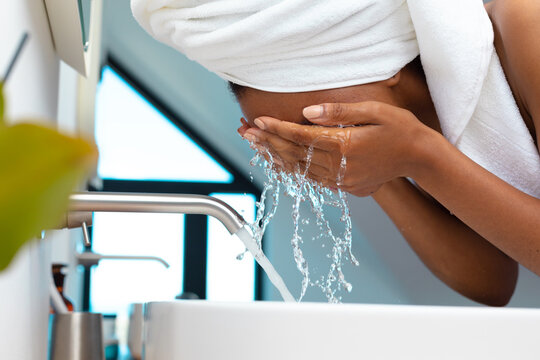
2. Choose the Right Cleanser.
Select a cleanser that matches your skin type. For oily skin, you might choose to opt for a foaming or gel cleanser that helps control excess oil. For dry or sensitized skin, use a hydrating cleanser that won’t strip away natural oils. Combination skin requires a balanced approach, using hydrating cleansers for different areas if necessary.
3. Use Lukewarm Water
Lukewarm water is gentle and helps open up pores, which makes it easier to cleanse effectively. When you use lukewarm water, you’ll actually feel the clean texture of your skin in the palm of your hand. people with oily skin type
4. Cleanse Twice a Day
Cleanse your face in the morning and evening to remove impurities. If you wear makeup, consider a double cleansing routine in the evening, starting with a makeup remover or micellar water before using your regular cleanser.
5. Gentle Massage
Apply the cleanser to your face and neck using gentle, upward, and outward circular motions. Avoid harsh scrubbing; it can irritate your skin.
6. Rinse Thoroughly
After cleansing, wash your face thoroughly with water to ensure all traces of the cleanser, along with dirt and makeup, are removed. Pat your skin dry with a clean, soft towel rather than rubbing, which can be harsh.
7. Avoid Over-Cleansing
While it’s important to cleanse thoroughly, avoid over-cleansing as Over-cleansing can remove the natural oils your skin needs, which could cause dryness and potentially increase oil production as your skin tries to balance itself.
Step 4. Exfoliate Wisely
Exfoliation is a critical step in skincare that helps remove dead skin cells, unclog your pores, and reveal a fresher, brighter complexion. This process will not only promote smoother, brighter skin but also allow other skincare products to penetrate and work more effectively.
Before using any exfoliant, you have to perform a patch test on a small area of the skin to ensure you don’t have an adverse reaction. Some people’s skin is allergic to some exfoliating ingredients.
You should ensure that you follow the instructions provided by your chosen exfoliant or your skin therapist. as Over-exfoliation can lead to skin irritations like stinging, pain, discomfort, redness, and increased sensitivity.

How to Exfoliate Wisely:
- Choose a gentle exfoliator. Look for one with small, smooth grains or chemicals like alpha hydroxy acids (AHAs) or beta hydroxy acids (BHAs). These are kinder to your skin.
- Don’t scrub too hard. Rub the exfoliator on your face gently, in circular motions. No need for harshness!
- Frequency: Exfoliate 1-3 times a week. Too much can irritate your skin.
- After exfoliating, apply sunscreen to shield your fresh skin from the sun.
The goal is to have your skin look its best but be nice to it while you’re doing it.
Step 5. Make use of the right moisturizer
Moisturizing is a vital skincare routine that helps to keep your skin glowing. While choosing a moisturizer, consider your skin type and opt for moisturizers that align with your skin needs.
Look for moisturizers with beneficial ingredients such as antioxidants (like vitamin C or E) or peptides that offer additional skin benefits beyond hydration.
If you prefer a streamlined routine, you can choose a daytime moisturizer with built-in sunscreen (SPF 30 or higher) to simplify sun protection.
Also, it’s essential to patch-test new moisturizers on your skin to ensure they work well with your skin. If you experience irritation or breakouts, consider trying a different product.
Step 6. Protect your skin from the harmful rays of the sun
Sun protection is an indispensable part of your skincare routine. The sun’s harmful ultraviolet (UV) rays can cause a wide range of skin issues, including premature aging, sunburn, and an increased risk of skin cancer.
While going out daily, you should make use of a broad-spectrum sunscreen that protects against both UVA and UVB rays. Go for sunscreens with an SPF (Sun Protection Factor) rating of 30 or higher for daily use.
Apply sunscreen generously to every part of your facial skin exposed to the sun, including your face, neck, ears, chest, and the backs of your hands. Don’t forget less obvious areas, like the top of your feet, if they’re exposed.
you should put sunscreen on your skin every two hours, especially when you’re outside. If you go swimming or if you sweat a lot, put it on even more often. Sunscreen can fade away or come off as the day goes on.
Besides sunscreen, think about wearing hats with wide brims, sunglasses, and clothes that cover your skin when you’re outside for a long time.
When the sun is really strong, try to stay in the shade between 10 in the morning and 4 in the afternoon. It helps protect your skin from too much sun.
Step 7. Stay Hydrated Always
Hydration is key to maintaining the skin’s moisture balance. When your body is well-hydrated, your skin is more likely to feel soft, smooth, and supple.
But if you don’t stay hydrated, your skin will become dry, flaky, and prone to irritation. Drinking enough water helps to combat dryness from the inside.
Staying hydrated is beneficial to the skin because:
- It helps your body eliminate toxins and waste products, which can contribute to clearer, healthier skin.
- It regulates oil production in your skin
- It plumps up cells, reducing the distance of fine lines and wrinkles.
- It can also make your skin have an even tone and texture.
To stay hydrated for healthy skin:
- Aim to drink at least 8 glasses (64 ounces) of water daily, though individual needs vary.
- Consider water-rich foods like fruits and vegetables.
- Limit diuretics like caffeine and alcohol, which can lead to dehydration.
- Monitor your urine color; pale yellow typically indicates adequate hydration.
Step 8. Eat Healthy and Nutritious Food
Taking care of your skin isn’t just about creams and lotions; it’s not solely about what you apply topically. What you eat matters too. Eating the right foods can help your skin stay healthy and look its best.
What to Eat:
- Try to eat a mix of foods like fruits, veggies, whole grains, lean meats, and good fats.
- Some vitamins and minerals, like A, C, and E, as well as zinc and selenium, are like super fuel for your skin. They help make collagen, fight inflammation, and keep your skin tone even.
What to Avoid:
- Don’t eat too much sugar or processed foods. They can make your skin unhappy, causing things like acne or making you look older before your time.
Your skin loves a healthy diet, so give it the good stuff!
Step 9. Sleep Well for Healthy Skin
Getting enough sleep is really good for your skin. You might not think it’s connected, but it’s a big deal.
Why Sleep Matters:
- It makes those dark circles and puffiness under your eyes go away.
- Your skin looks fresher and healthier when you sleep enough.
More Benefits:
- Sleep helps control your hormones, and that’s important for your skin. If you don’t get enough sleep, your hormones can get out of balance and cause skin problems like acne or too much oil on your skin.
So, don’t underestimate the power of a good night’s sleep for your skin’s health!

Here’s how to make sure you get enough sleep for healthy skin, especially if you’re just starting:
- Try to sleep for 7-9 hours each night, like adults should.
- Go to bed and wake up at the same time every day. This helps your body get used to a routine.
- Do calming things before sleep, like reading or meditation, to help your mind unwind.
- Make your sleeping place comfy; it could be dark, quiet, and not too warm.
- Don’t use phones, computers, or TVs before bedtime. The bright light from screens can mess with your sleep and Disrupt your sleep.
Step 10. Manage Stress
For beginners, taking care of your skin also means managing stress, which is often forgotten but very important. Stress can harm your skin’s health and how it looks. When you’re stressed, your body releases hormones like cortisol, which can make your skin inflamed and sensitive.
Stress can also make your skin’s protective layer weaker, making it easier for things outside your body to irritate it and for your skin to lose moisture.
To keep your skin healthy and deal with stress:
- Try relaxing activities like deep breathing, meditation, or yoga.
- Exercise regularly to reduce stress and feel better overall.
- Make sure you get enough sleep because it helps your body recover from stress.
- Talk to friends, family, or a mental health expert if you’ve been stressed or anxious for a long time.
- Do things you enjoy and that help you relax.
- Stay away from harmful habits like smoking and drinking too much alcohol.
Step 11. Avoid Harmful Habits: Smoke and Alcohol
Healthy skin isn’t just about what you do; it’s also about avoiding things that hurt your skin. Smoking and heavy drinking are bad for your skin. Smoking makes your skin’s blood vessels narrow, so it gets less blood and oxygen.
Smoking also harms collagen and elastin, which can make your skin lose its bounce over time.
Alcohol can dry out your skin and make your blood vessels expand, leading to redness and a flushed look. If you drink too much over time, it can cause skin problems like rosacea and make your skin age faster.
This skin-harming habit will make your skin age faster with wrinkles, lines, and a dull look.
Conclusion
To wrap things up, think of your skin as a reflection of your health and self-care. We’ve covered a lot in this guide to help you take care of your skin effectively.
You’ve learned about different skin types, how to clean your skin properly, the importance of exfoliation, using the right moisturizer, and eating well for great skin. You’ve also discovered how to protect your skin from the sun, manage stress, and avoid harmful habits that can harm your skin.
This skincare journey is ongoing. If you don’t have a good skincare routine, you might face issues like skin dryness, coarse skin, and aging sooner than expected. So, keep an eye on your skin, adjust your routine as needed, and get expert help when required.
Ready for Beautiful Skin in Nigeria? Start Here! Follow these Simple Step-by-Step Guides for Glowing Skin. Shop Now for Skincare Essentials and Begin Your Journey to a Radiant Complexion.

